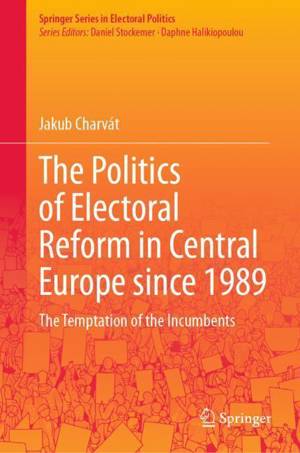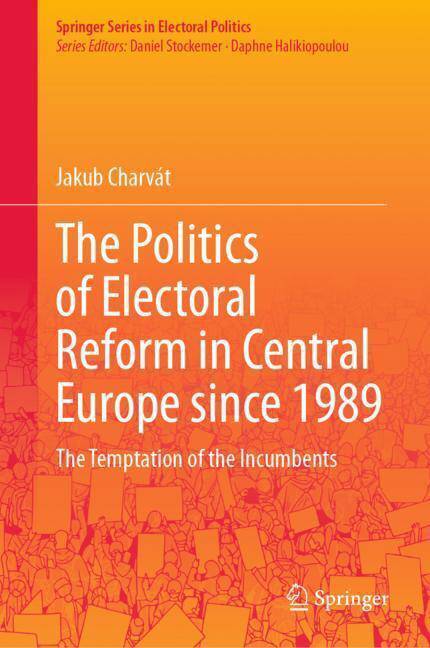
- Afhalen na 1 uur in een winkel met voorraad
- Gratis thuislevering in België vanaf € 30
- Ruim aanbod met 7 miljoen producten
- Afhalen na 1 uur in een winkel met voorraad
- Gratis thuislevering in België vanaf € 30
- Ruim aanbod met 7 miljoen producten
Zoeken
The Politics of Electoral Reform in Central Europe Since 1989
The Temptation of the Incumbents
Jakub Charvát
€ 198,45
+ 396 punten
Uitvoering
Omschrijving
This book on the politics of electoral reform in Central Europe since 1989 explains by whom, why, and how the electoral rules were changed in Central Europe in the post-Communist period. Examining the contextual factors affecting, underlying, and/or initiating these changes, the book identifies main actors, their motivations, and other circumstances surrounding the electoral reform processes. It further explores their political consequences, particularly on proportionality and personalization.
Based on a detailed analysis of electoral reform processes in Czechoslovakia, Czechia, Hungary, and Slovakia over the past thirty years, the book discusses how the politics of electoral reform in Central Europe is mostly driven, controlled, and decided by politicians, with other actors being either overlooked or ignored. Finally, it argues that most of the cases were imposed by an elite majority, with the sole exception of the Czech Republic, where the politics of electoral reform were influenced by the intervention of the constitutional court as an external actor.
The book will appeal to students, researchers, and scholars of political science interested in a better understanding of electoral politics in general, as well as democratic transformation processes and electoral reform in Central Europe.
Based on a detailed analysis of electoral reform processes in Czechoslovakia, Czechia, Hungary, and Slovakia over the past thirty years, the book discusses how the politics of electoral reform in Central Europe is mostly driven, controlled, and decided by politicians, with other actors being either overlooked or ignored. Finally, it argues that most of the cases were imposed by an elite majority, with the sole exception of the Czech Republic, where the politics of electoral reform were influenced by the intervention of the constitutional court as an external actor.
The book will appeal to students, researchers, and scholars of political science interested in a better understanding of electoral politics in general, as well as democratic transformation processes and electoral reform in Central Europe.
Specificaties
Betrokkenen
- Auteur(s):
- Uitgeverij:
Inhoud
- Aantal bladzijden:
- 166
- Taal:
- Engels
- Reeks:
Eigenschappen
- Productcode (EAN):
- 9783031450822
- Verschijningsdatum:
- 7/11/2023
- Uitvoering:
- Hardcover
- Formaat:
- Genaaid
- Afmetingen:
- 156 mm x 234 mm
- Gewicht:
- 426 g

Alleen bij Standaard Boekhandel
+ 396 punten op je klantenkaart van Standaard Boekhandel
Beoordelingen
We publiceren alleen reviews die voldoen aan de voorwaarden voor reviews. Bekijk onze voorwaarden voor reviews.







